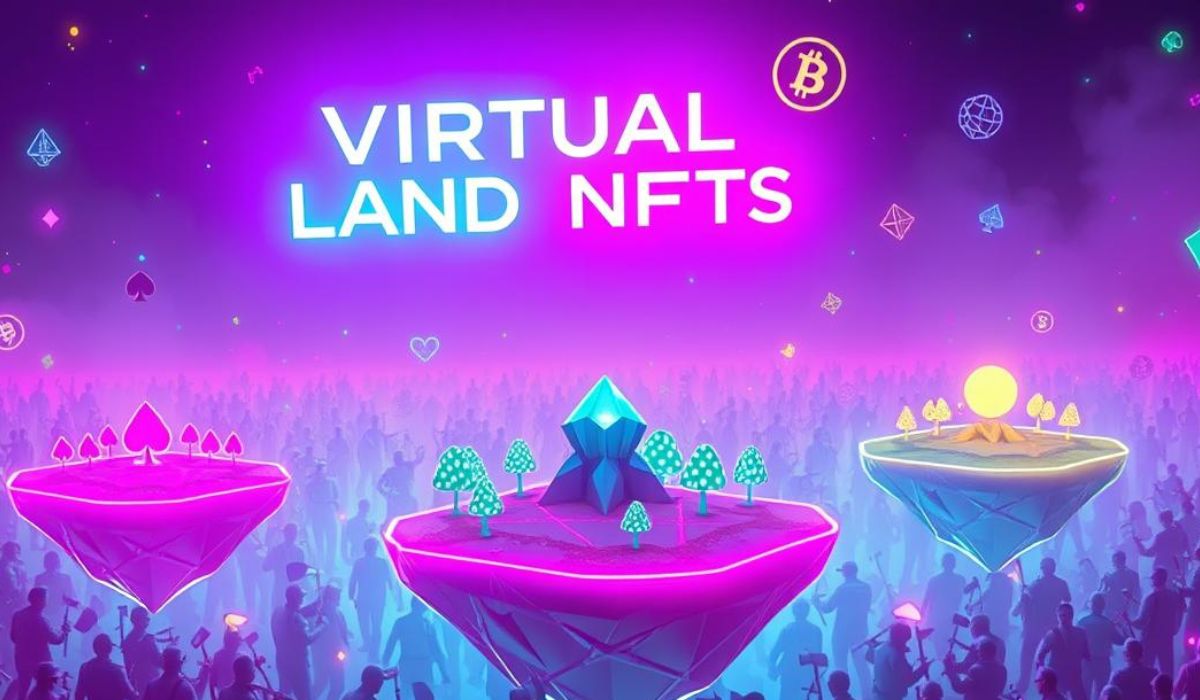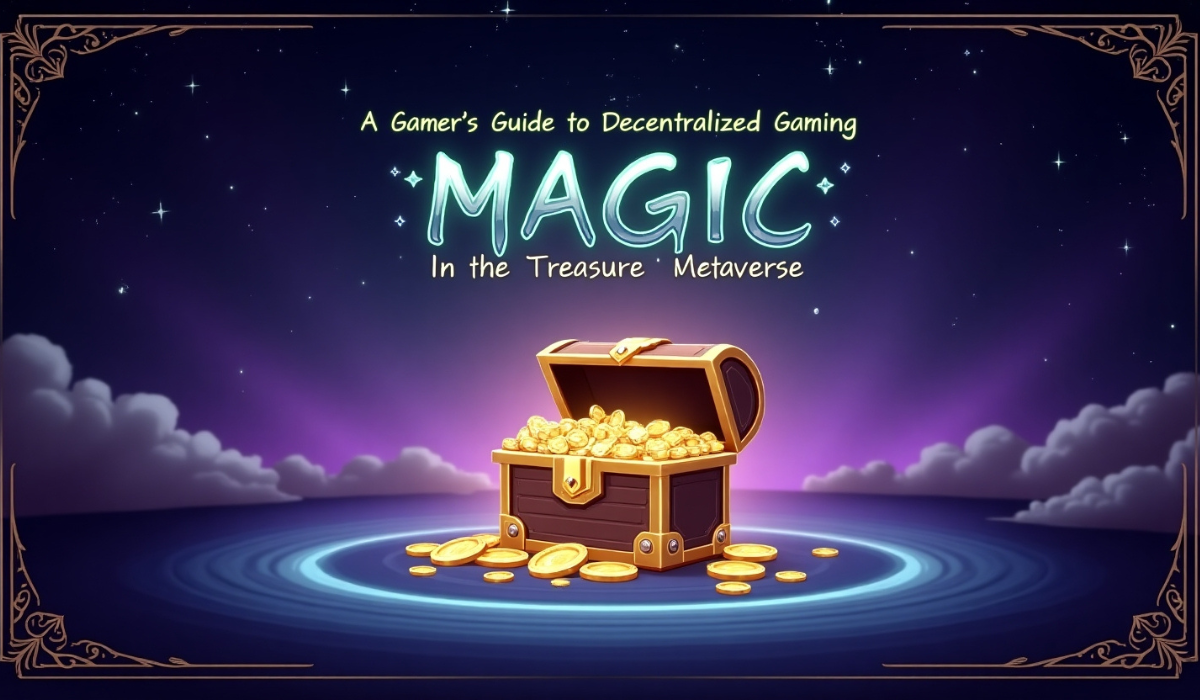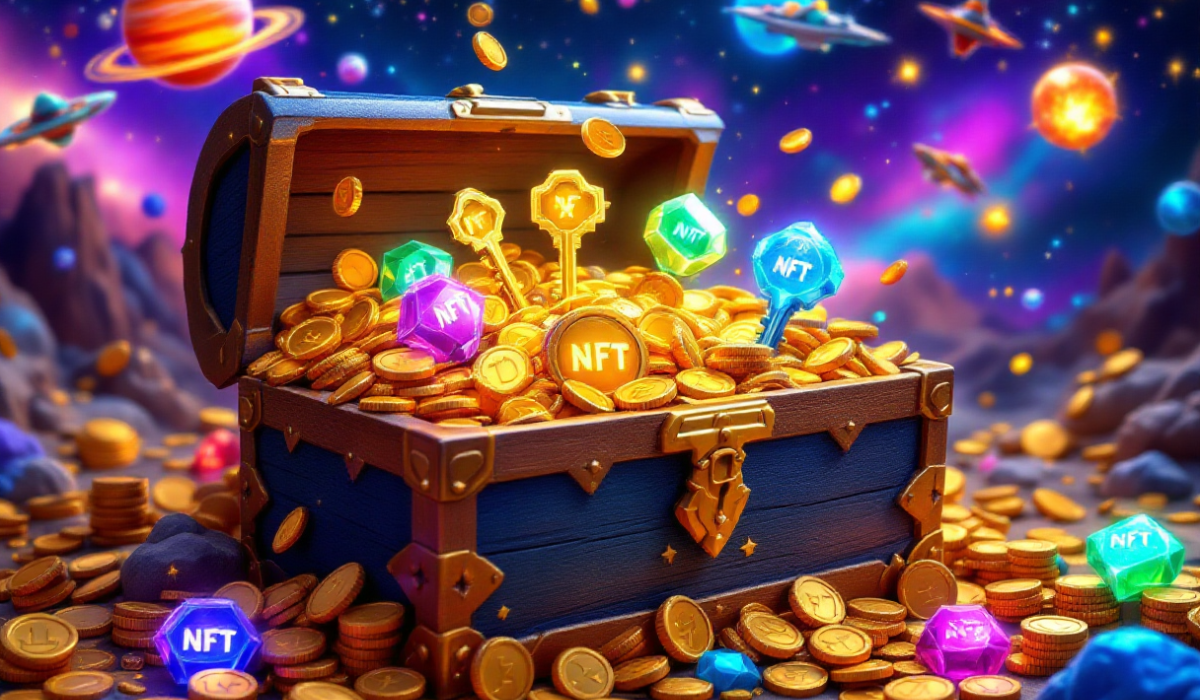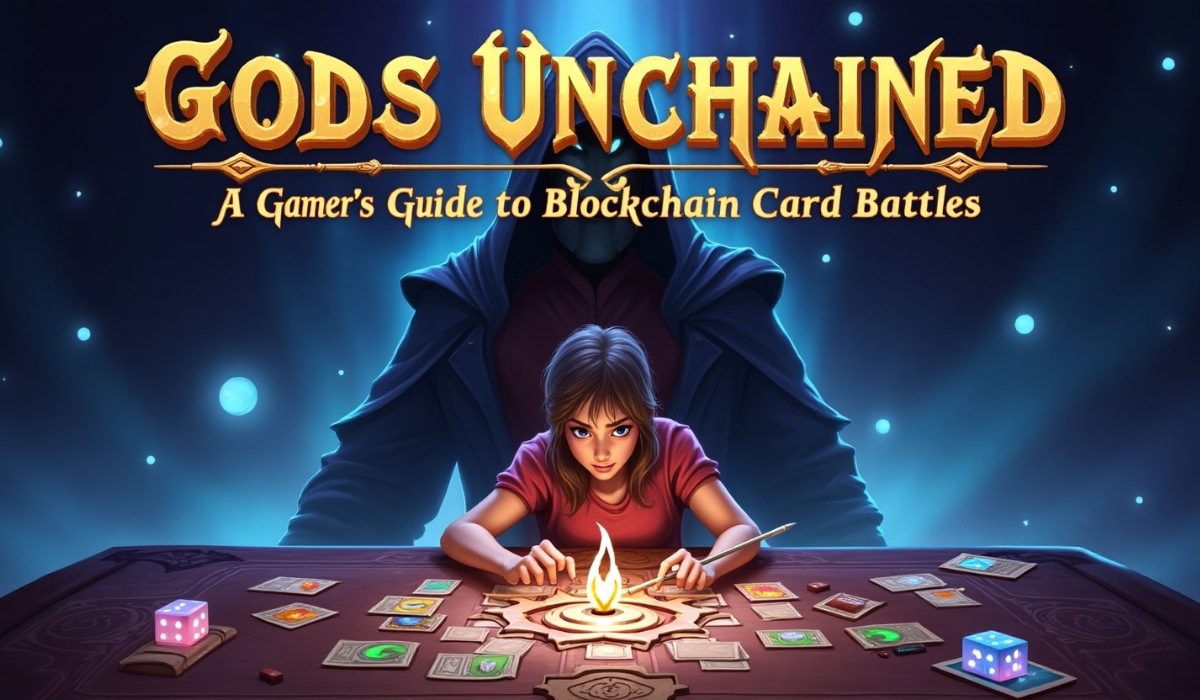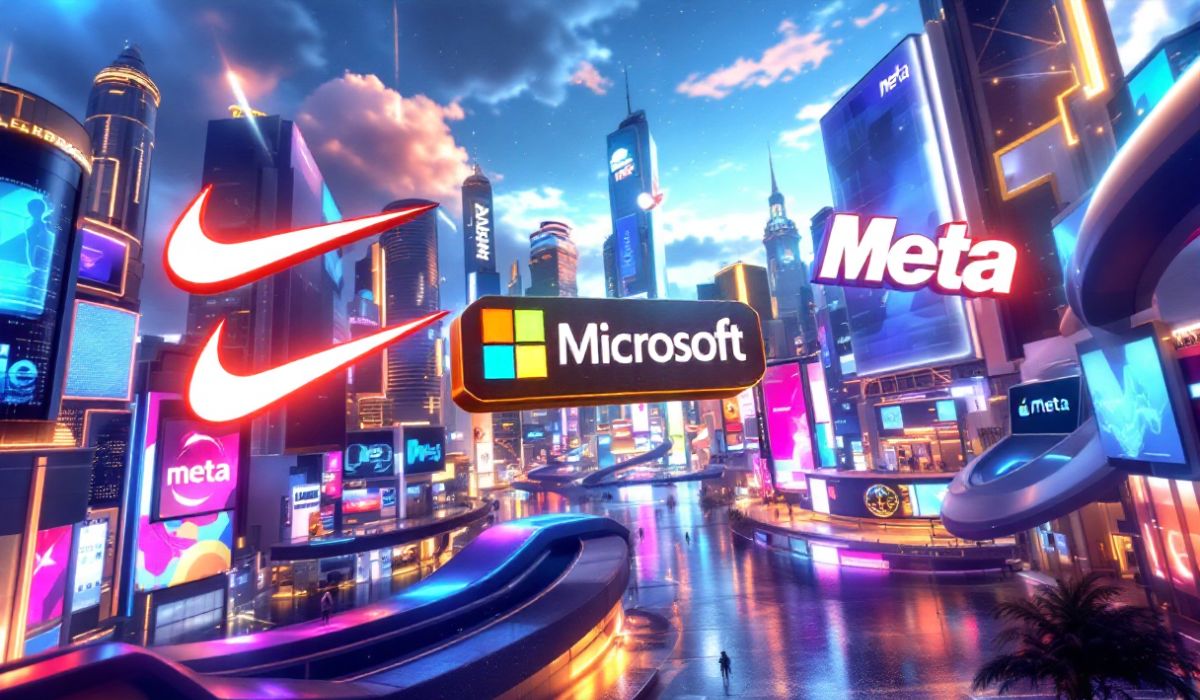
The metaverse, once seen as a futuristic concept, is becoming a serious focus for the world’s largest companies. Global brands such as Nike, Microsoft, and Meta are spending billions to develop digital spaces, combining virtual reality, gaming, and Web3 technology to reach new audiences. Market researchers expect the metaverse industry to reach $181 billion by 2030, with some forecasts pointing to trillions in value once fully developed.
Nike: Building Digital Fashion and Virtual Communities
Nike has been one of the most active consumer brands in the metaverse. Its efforts began in 2021, when it acquired RTFKT Studios, a company known for designing virtual sneakers and digital collectibles. This move allowed Nike to quickly enter the world of NFTs (non-fungible tokens). By 2022, sales of Nike’s digital products through RTFKT had generated about $185 million. However, priorities shifted in January 2025, when Nike closed RTFKT to streamline its digital operations. Rather than exiting the metaverse, Nike refocused on its own platforms. Its project SWOOSH, launched in 2022, allows users to co-create NFTs such as sneakers and apparel, while also earning royalties whenever their designs are sold.
Nike also built a virtual world called Nikeland inside Roblox, a gaming platform popular with younger audiences. Nikeland has already attracted more than 7 million visitors from over 200 countries, hosting special events featuring sports stars like LeBron James. Legal battles have also highlighted the importance of protecting brand assets in virtual spaces. In August 2025, Nike reached a settlement with StockX over the use of Nike trademarks in NFTs. This shows how intellectual property (IP) law is extending into digital worlds, with ownership verified on-chain through platforms like OpenSea.
Microsoft: Using the Metaverse for Work and Industry
Microsoft is approaching the metaverse from a more enterprise-focused angle, aiming to transform the way companies work. Over the past few years, the company has invested more than $20 billion in augmented reality (AR), virtual reality (VR), and cloud infrastructure built on Azure. One of its key projects is Mesh for Teams, a platform that enables people to hold virtual meetings using avatars in immersive 3D environments. Microsoft has also partnered with Meta to bring its Microsoft 365 tools, including Word, Excel, and Outlook, into Meta’s Horizon Worlds. This integration helps make virtual collaboration more practical for businesses.
Microsoft’s scale gives it an advantage. The company announced plans to spend $80 billion in fiscal year 2025 on new data centers, designed to power AI-driven virtual environments. It also strengthened its gaming presence by acquiring Activision Blizzard, which expands possibilities for building connected gaming metaverses. With Xbox Cloud Gaming now available on VR headsets, users can access high-quality games directly within immersive worlds.
Analysts frequently list Microsoft as one of the strongest metaverse stocks because of its leading position in cloud computing. Beyond gaming and social spaces, its metaverse focus includes industrial simulations, such as digital twins for manufacturing and logistics.
Meta: The Biggest Risk-Taker in the Metaverse
No company has tied its future to the metaverse more than Meta. Formerly known as Facebook, the company rebranded in 2021 to reflect its new direction. Since then, Meta has invested more than $50 billion in building its metaverse ecosystem.
Much of this investment has gone into Reality Labs, the division responsible for hardware like the Quest Pro VR headset and the virtual world Horizon Worlds. While these initiatives have faced challenges, Meta remains committed. In Q2 2025, Reality Labs reported a $4.53 billion loss on just $370 million in revenue. Still, the company raised its capital expenditure forecast for the year to $66–72 billion, showing continued determination to build the next digital frontier.
Horizon Worlds offers a platform for social VR experiences, where people can meet, play games, and build environments. The Quest Pro currently holds about 35% of the VR hardware market, giving Meta a strong base of users. At the same time, Meta’s core business advertising remains highly profitable, helping fund ongoing metaverse projects. Mark Zuckerberg has also emphasized the role of AI integrations in making Horizon Worlds more useful and accessible. The long-term goal is to move beyond gaming and entertainment, creating a platform where people interact, shop, and work daily.
Why Brands Are Betting on the Metaverse
The current wave of investments marks a recovery from the 2022 crash, when metaverse enthusiasm slowed due to economic uncertainty. Today, advances in AI, blockchain, and VR hardware, combined with clearer regulations, are renewing corporate confidence.
For brands, the metaverse is not seen as a replacement for physical experiences, but as an extension of engagement. Digital-native consumers, especially younger generations, are spending more time in online spaces, and companies want to meet them there. Whether it is selling virtual fashion, hosting online events, or enabling new forms of work, the metaverse is becoming a place where businesses can build loyalty and reach global audiences instantly.
Final Thoughts
Nike, Microsoft, and Meta are each approaching the metaverse from different angles, fashion and lifestyle, enterprise solutions, and social VR. Together, they show that the metaverse is not just a passing trend but a long-term shift in how people interact with digital spaces. While challenges such as high costs, legal questions, and uncertain adoption remain, the scale of investment signals that the metaverse could reshape industries ranging from fashion and gaming to workplaces and commerce. For businesses and investors, paying attention to these developments may be key to staying ahead in a rapidly evolving digital economy.







